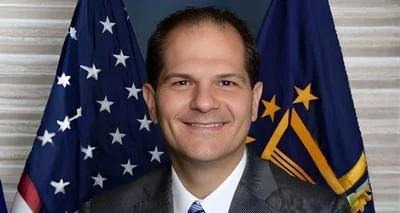Amy Korte, Executive Vice President | https://www.illinoispolicy.org/our-story/?team-filter=staff#team
Amy Korte, Executive Vice President | https://www.illinoispolicy.org/our-story/?team-filter=staff#team
Lawmakers in Illinois are preparing to address several major policy issues during the upcoming veto session, including energy reform, public transit funding, and state worker pensions. Experts from the Illinois Policy Institute have offered their perspectives on these matters.
One of the key topics is Senate Bill 25, an extensive energy package. The bill proposes ending the state's nuclear moratorium and aims to streamline permitting for solar and energy storage projects. It also introduces expanded state oversight, long-term utility planning, and new programs that would increase state costs.
Josh Bandoch, head of policy for the Illinois Policy Institute, commented on the proposed energy legislation: “While eliminating the nuclear moratorium would be a positive and necessary step toward addressing Illinois’ energy crisis, it shouldn’t be coupled with additional unstudied mandates and new funding requirements. We want to make Illinois more attractive for business, not pass new costs and taxes onto residents and businesses.”
Transit funding is another significant issue as lawmakers consider how to address Chicagoland’s projected $200 million public transportation deficit for 2026. This shortfall is expected to grow to $790 million by 2027. Proposals include a statewide $1.50 delivery tax and higher surcharges on rideshare services; however, options such as spending freezes or system consolidation have not been included in current plans.
LyLena Estabine, policy researcher at the Illinois Policy Institute, stated: “Having reliable public transportation is a real need, but Illinois lawmakers must pursue meaningful consolidation and rightsize schedules, not ask for more funding from people who don’t use the lines. Existing bills have failed to meaningfully reduce overhead costs and ignored changing ridership patterns. It isn’t fair to burden downstate residents with a new, regressive tax on every delivery in order to bailout a broken system.”
Pension reform will also be discussed through Senate Bill 1937. The proposal would expand pension benefits for state workers hired after 2011—a move estimated to add over $64 billion in pension debt by 2049. Such an increase could limit funds available for other essential services like education or infrastructure.
Bryce Hill, director of fiscal and economic research at the institute, said: “Illinois already has the worst pension crisis in the nation and sweetening Tier 2 pensions will make it astronomically worse, adding mountains of debt for future generations to pick up, guaranteeing property tax hikes and putting government workers’ retirements at risk. Earlier this year lawmakers resolved any problems with Tier 2’s wage base; no further changes are necessary. We should stop making the problem worse and start addressing solutions.”
The outcome of these debates may shape state policies on energy development, transit funding approaches, and long-term financial stability related to pensions.






 Alerts Sign-up
Alerts Sign-up